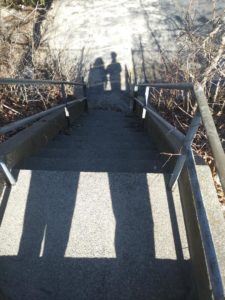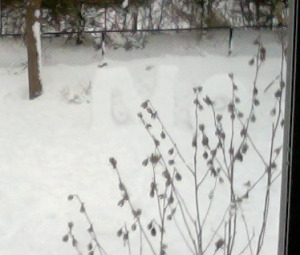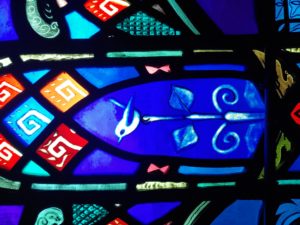Readings: Isaiah 64:1-9; Psalm 80:1-7, 17-19; I Corinthians 1:3-9; Mark 13:24-37
“But in those days, after that suffering, the sun will be darkened, and the moon will not give its light, and the stars will be falling from heaven, and the powers in the heavens will be shaken. Then they will see ‘the Son of Man coming in clouds’ with great power and glory. Then he will send out the angels, and gather his elect from the four winds, from the ends of the earth to the ends of heaven. [Mark 13:24-27, NRSV]

I am drawn to Advent like a moth to the flame.
As the endless, tedious Sundays after Pentecost grind to an end I cannot wait to turn purple. But why? Why do I long for gospels of darkened suns and blotted moons? Why pine for prophecies of doom-cum-dawn? Why raise my hand for a helping of judgment?
My family says it’s my Nordic noir, the shadowed world of Ingmar Bergman, August Strindberg, even Henry Mankell. Maybe, but there are legions of non-Scandinavians who love this season’s art of darkness. It’s because we need to know that the whole of our lives, the whole of the world, is good—and not just the best, well-lit bits.

In the first creation story of Genesis, God separates the Light and the Darkness, naming them Day and Night (1:4-5). This is the eternal cycle of light and dark that is the backdrop of all creation. Every day passes into night. Every year is equally split between the two. And every human heart holds both its light and (how could it be otherwise?) its shadow—if we dare to meet it. Unless we can understand the Night, even befriend it, we are missing exactly half the action—and, as it turns out, the most powerful half! For, like Jacob at the river Jabbok, it is what we meet and wrestle in the darkness that holds the power to bless us.

That or something like it, bigger even than I know, is why I am so attracted to the days and nights of Advent. As the earth makes its final December descent, Advent pulls us into the great big shadow, the planet’s and our own. There we meet an apocalyptic Jesus—as in the gospel for today—warning of a time when the sun will be darkened and the moon will not give its light. I’ve studied those words, preached on those words, and I still have no earthly idea what they mean. Doesn’t matter. Advent bypasses the brain and simply wallops the heart. I know what that kind of black-out feels like, and the eschatological preacher is painting this chiaroscuro canvas, calling me to repentance. You must change your life. Now, while you yet have time.

I don’t believe in some Hieronymus Bosch vision of judgment, but this stabs my heart. I know about regret, remorse, lost time. Whatever I “believe” or don’t, I feel the urgency of this moment, and the hope hidden in all true judgment, the promise that change is still possible and love has not given up on me yet.
When he first came to live with us, an exile from Manhattan at the beginning of the plague, my five year-old grandson was afraid to go down into the basement at night. His room, his parents’ room was down there so it was often necessary, but he wouldn’t go without a hand to hold. If someone had turned on the light at the bottom of the stairs it was all right, and the hall just beyond was well lit. It was just that fearful descent and the well of darkness at the bottom. It gave me such deep joy to take Dashiell’s hand and accompany him on such an important journey. Now that he is no longer afraid I am a little wistful.

Advent is the hand I hold to make that same descent. It is primitive exposure therapy, like the bronze serpent raised on a pole. When I fear darkness, I am to turn into it, flee into the stories of apocalypse and warning and judgment, because, paradoxically, they are the only source of actual hope.
If you take those awesome downward steps, one day you will come to know the sweetness of the light because you are, in Robert Frost’s words, “one acquainted with the night.”

Offered by David R. Anderson, priest, preacher, grandfather bound for Bethlehem. [www.findingyoursoul.com]






